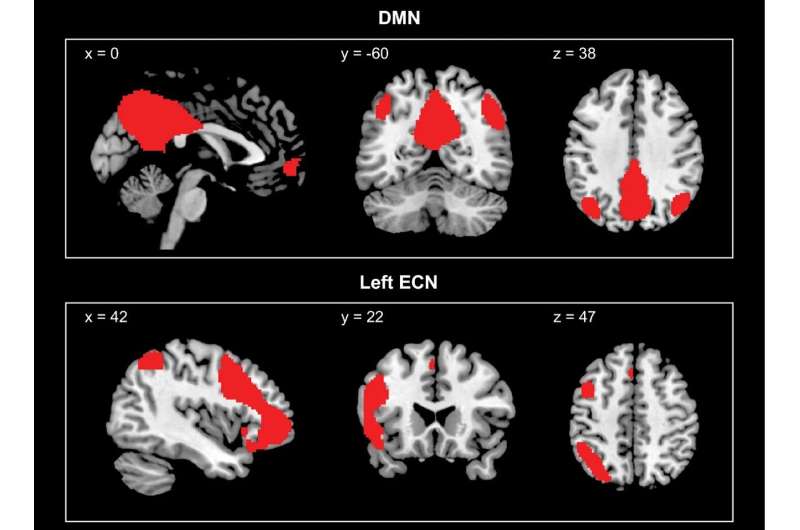This article has been reviewed according to Science X's editorial process and policies. Editors have highlighted the following attributes while ensuring the content's credibility:
fact-checked
trusted source
proofread
Study shows that 'transcendent' thinking may grow teens' brains over time

Scientists at the USC Rossier School of Education's Center for Affective Neuroscience, Development, Learning, and Education (CANDLE) have shown for the first time that a type of thinking that has been described for over a century as a developmental milestone of adolescence may grow teenagers' brains over time.
This kind of thinking, which the study's authors call "transcendent," moves beyond reacting to the concrete specifics of social situations also to consider the broader ethical, systems-level and personal implications at play. Engaging in this type of thinking involves analyzing situations for their deeper meaning, historical contexts, civic significance, and/or underlying ideas.
The research team, led by USC Rossier Professor Mary Helen Immordino-Yang, includes Rebecca J.M. Gotlieb, a research scientist at UCLA, and Xiao-Fei Yang, an assistant research professor at USC Rossier. The published study "Diverse adolescents' transcendent thinking predicts young adult psychosocial outcomes via brain network development" is published in Scientific Reports.
In previous studies, the authors had shown that when teens and adults think about issues and situations in a transcendent way, many brain systems coordinate their activity, among them two major networks important for psychological functioning: the executive control network and the default mode network.
The executive control network is involved in managing focused and goal-directed thinking, while the default mode network is active during all kinds of thinking that transcends the "here and now," such as when recalling personal experiences, imagining the future, feeling enduring emotions such as compassion, gratitude, and admiration for virtue, daydreaming or thinking creatively.
The researchers privately interviewed 65 14–18-year-old high school students about true stories of other teens from around the world and asked the students to explain how each story made them feel. The students then underwent fMRI brain scans that day and again two years later. The researchers followed up with the participants twice more over the next three years as they moved into their early twenties.
What the researchers found is that all teens in the experiment talked at least some about the bigger picture—what lessons they took from a particularly poignant story or how a story may have changed their perspective on something in their own life or the lives and futures of others. However, they found that while all of the participating teens could think transcendently, some did it far more than others.
And that was what made the difference. The more a teen grappled with the bigger picture and tried to learn from the stories, the more that teen increased the coordination between brain networks over the next two years, regardless of their IQ or their socioeconomic status.
This brain growth—not how a teen's brain compared to other teens' brains but how a teen's brain compared to their own brain two years earlier—in turn predicted important developmental milestones, like identity development in the late teen years and life satisfaction in young adulthood, about five years later.
The findings reveal a novel predictor of brain development—transcendent thinking. The researchers believe transcendent thinking may grow the brain because it requires coordinating brain networks involved in effortful, focused thinking, like the executive control network, with those involved in internal reflection and free-form thinking, like the default mode network.
These findings "have important implications for the design of middle and high schools, and potentially also for adolescent mental health," senior researcher Immordino-Yang says. The findings suggest "the importance of attending to adolescents' needs to engage with complex perspectives and emotions on the social and personal relevance of issues, such as through civically minded educational approaches,"'
Immordino-Yang explains. Overall, Immordino-Yang underscores "the important role teens play in their own brain development through the meaning they make of the social world."
More information: Rebecca J. M. Gotlieb et al, Diverse adolescents' transcendent thinking predicts young adult psychosocial outcomes via brain network development, Scientific Reports (2024). DOI: 10.1038/s41598-024-56800-0



















